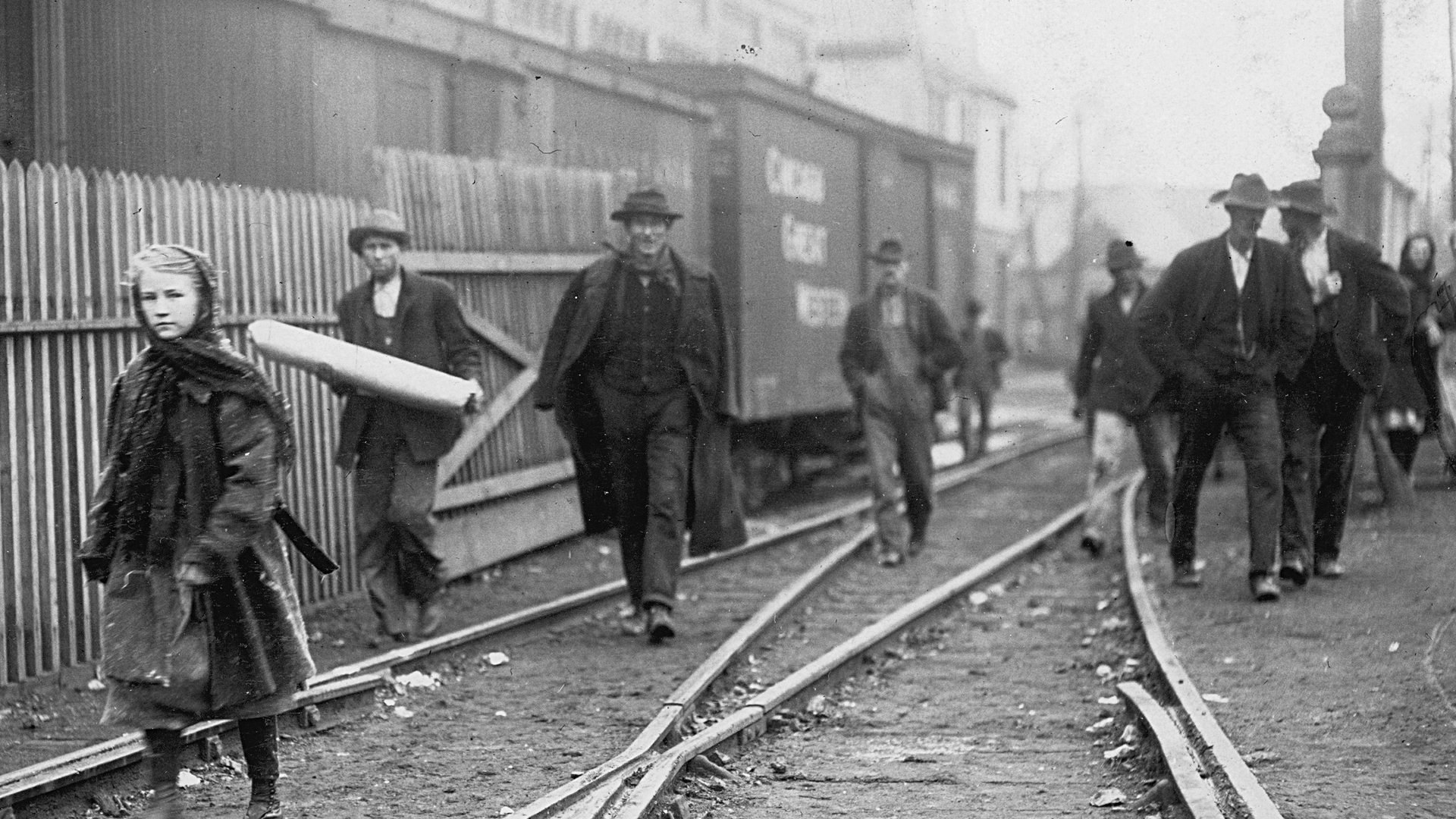Introduction: Why Worker Writing Matters
by
Notes from Below (@NotesFrom_Below)
October 7, 2020
Featured in From the Workplace (#13)
An introduction to “From the Workplace”

inquiry
Introduction: Why Worker Writing Matters
by
Notes from Below
/
Oct. 7, 2020
in
From the Workplace
(#13)
An introduction to “From the Workplace”
Why work?
The Notes from Below project is centred around a simple focus: that the experience of work matters for understanding the world and struggling to change it.
We focus on work for two reasons. First, that work is central for understanding capitalism. From an individual’s perspective, it might be difficult to see how capitalism relies on our labour. Yet, without us working, capitalism as a system would shut down. For example, we saw this playing out during the COVID-19 crisis. As more of us were forced to work from home or were unable to work because of closures, the world economy slowly grounded to a halt. Governments in the US and the UK, Brazil and India, rather risked our health and our lives to keep us at work, in order to save companies’ profits. Therefore, we believe that through sharing our experiences of work across different parts of the economy, we can begin to build a picture of how capitalism operates.
The contradictions of capitalism are expressed in the division between employers and us as workers (whether we have employee status, formal contracts, or not). When we agree to work, there is always a negotiation that takes place about how hard we will work - whether explicit or not. For the employer, they want the most out of what they have just purchased: our time and labour power. As workers, we have different interests. Whether we want to try and avoid work as much as possible or not, or be paid a greater share of the profits we produce, we want to have some time and energy left for the rest of our life once the workday ends.
This basic contradiction comes up again and again. Perhaps as clearly as a struggle over the length of our workday, perhaps over the intensity or speed of our work, or maybe about greater control over how our work is organised and carried out. It is expressed in the form of the bullying supervisor, the demand for unpaid overtime, oppressive managerial practices, the lack of health and safety equipment, the use of new technology, the exhaustion at the end of the day, the worries about stable employment - these are all smaller expressions of the overall structure of society. The specific experiences of each of these issues in each workplace matters for understanding the system as a whole.
Secondly, because capitalism relies on our work - both in our particular workplaces and generally across the economy - workers also have the potential to wield significant collective power. Through the processes of work we have shared experiences that bring us into contact with other workers: our struggles over specific issues at work can be connected to that of others as we discover that managers and employers use similar strategies and levers of power to make us work harder. In the process we also discover that if we take them on together, we can fight back and undermine their plans. This is why, at the most fundamental level, we believe that it is necessary for us to build new networks that share stories and experiences about our workplaces, our employers’ strategies and our resistance to them - in order to collectively identify what worked and what did not.
This is why we think our experiences of work matter.
When we push back against one part of the work process, whether striking for higher wages or just demanding a new kettle in the breakroom, the implications of this go way beyond the individual workplace. New tactics of resistance and collective power are constantly being tested in practice. Many of these are not shared - or they become lost as people move on to new workplaces, retirement, or unemployment. However, managers certainly learn from each other, sharing tactics and techniques to keep workers in line through employers’ conferences, company handbooks and training days, and even sector wide blacklists.
While many employers talk of “human resources”, we know that we have a life beyond our work for which our resources must be saved. That need points towards other ways of organising society - in the bonds and solidarities we develop with each other. These support us through work, but also shape our ability to respond and collectively organise.
Why workers’ inquiry?
This is why at Notes from Below, we have tried to develop ways to give a voice to workers to describe, analyse, criticise and - hopefully - help people to change their own conditions of work. The aim is to share stories, strategies, and tactics, in order to start building networks based on our collective experiences of work and the struggles against them.
This approach is based on the idea of “workers’ inquiry”, first developed by Karl Marx. He attempted to connect his general theory of capital to the everyday experience of factory workers. To do so, he used a postal survey. Since then, others who followed in his footsteps developed other ways to connect research to organising, theory to workers experience. This involved attempting to make sense of changes at work, by doing what is called a “workers’ inquiry.” The term reflects the intention to look into work systematically from the perspective of the people actually doing it, to develop as accurate a picture as possible of society and the process of production that sustains it.
Later on, this was developed by Italian Workerists with the idea of “class composition.” They argued that the inquiry can show how work is changing at a particular point (with a new composition), helping to contribute to a bigger picture of the overall relations of society (a new class composition).
For Notes from Below, this method involves featuring workers’ own writing, hosting leaflets and bulletins in order to inspire others to use them or create their own, carrying out interviews with workers and organisers, as well as publishing analytical pieces to accompany these. The project is an attempt to develop methods and theory from the class composition tradition of Marxism. This seeks to not only understand the world from the worker’s point of view, but also to try and change it.
Workers’ inquiry provides a way to ground our politics in the perspective of the working class. The connection between research and organising means it has to involve action: helping to circulate and develop struggles, building workers’ confidence to take action by and for themselves.
Why write?
As a starting point, we believe that workers writing about their own conditions matters. We think that workers are best placed to understand their own work. Through workers’ inquiries, this knowledge can be shared and compared with that of others. We believe that workers have the power to change their own conditions as well as that of others and that the starting point for them to do so is to collectively reflect on their working conditions and their tools of resistance.
There are too many experts who write about other people’s work, without ever doing it or taking workers’ experiences seriously. There are also too many commentators that propose solutions for the current crisis without these ideas being grounded in working class experience.
We also know that writing can take time. It can cost money to travel and pay expenses, spend time speaking to other people, or just finding the time and space to work on it. That is why we set up the “Workers’ Inquiry Fund” for new worker writers, providing resources to workers who want to detail their own experiences at work, study their workplaces, and analyse the relations of conflict, exploitation, and resistance within them. We know that writing can be a difficult process and we have worked with worker writers with a great variety of experience and confidence. It was supported by the Barry Amiel and Norman Melburn Trust, providing grants to cover these costs. Before Covid-19 took hold, we held workshops with worker writers who were interested in starting their own inquiries. These were an opportunity to share ideas, experiences, and resolve problems collectively.
Writing is not an end in and of itself. We understand writing as part of a process of organising, seeking to understand conditions in order to change them. Worker writing projects that take inspiration from workers’ inquiry must be connected to organising. We are committed to supporting this at Notes from Below. The chapters that follow each offer a glimpse into working conditions today, and hopefully this collection can start discussions between the writers and their coworkers as well as workers across the board on similarities and differences between their industry and others, their experiences and that of other workers, and potential avenues for resistance and solidarity.
Indeed, while the pieces contained in this issue come from a variety of industries, from call centres to kitchens, courier bikes to warehouses, classrooms to online platforms, bars, supermarkets, and editorial offices, they also underline striking similarities in the organisation and experience of work today. Exploitation, insecurity, surveillance and isolation are themes that repeatedly appear in the contributor’s accounts, as do deep contempt for managers and companies that impose these conditions.
These inquiries provide vital insights into the working of capitalism today. These are insights that can only be generated from the workers perspective. Workers’ experience matters. It is the raw material of class struggle. It provides maps and tools to get us out of the current crisis. It is the basis for taking successful action. Beyond that, it begins charting the possibility of other ways to run society. As we have quoted many times in Notes from Below before: there can be no politics without inquiry!
Featured in From the Workplace (#13)
author
Notes from Below (@NotesFrom_Below)
Subscribe to Notes from Below
Subscribe now to Notes from Below, and get our print issues sent to your front door three times a year. For every subscriber, we’re also able to print a load of free copies to hand out in workplaces, neighbourhoods, prisons and picket lines. Can you subscribe now and support us in spreading Marxist ideas in the workplace?
Read next

The Workers’ Inquiry and Social Composition
by
Notes from Below
/
Jan. 29, 2018

